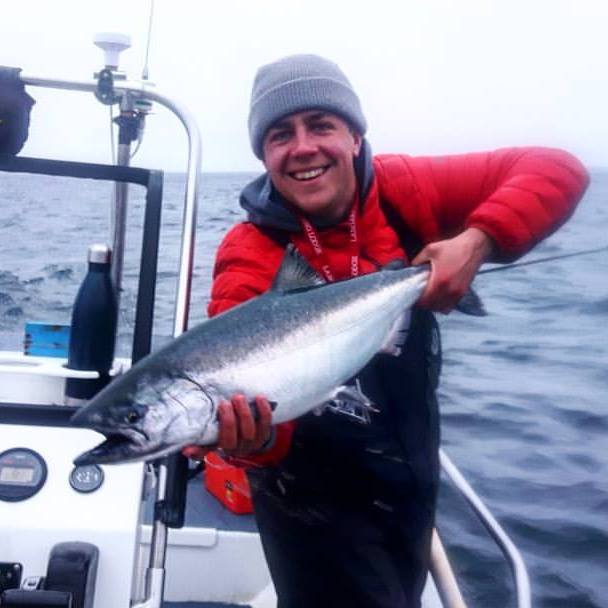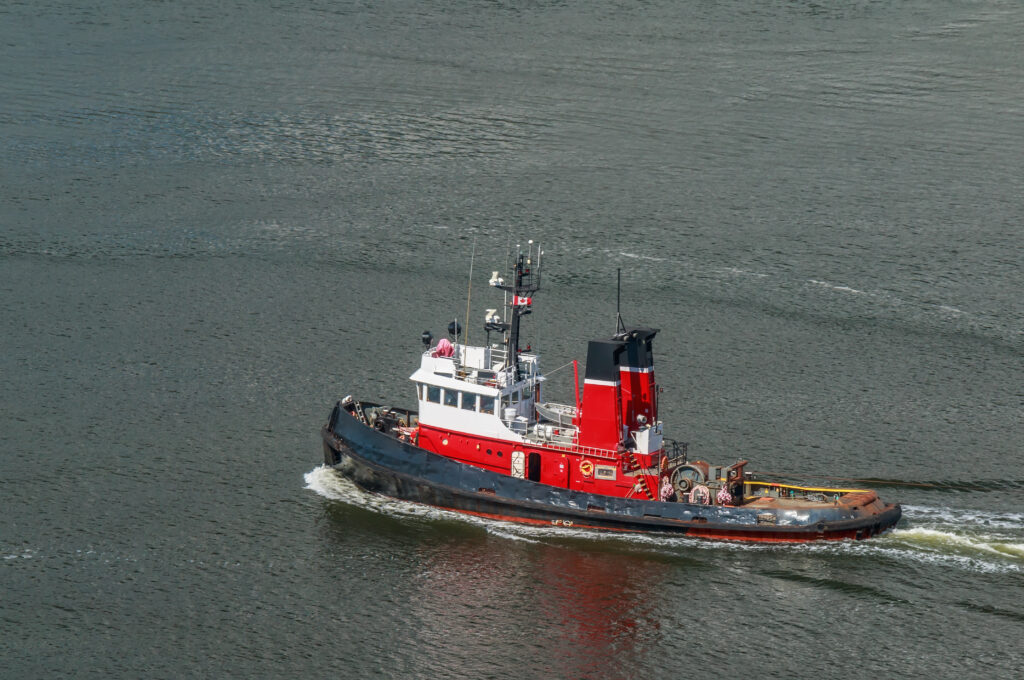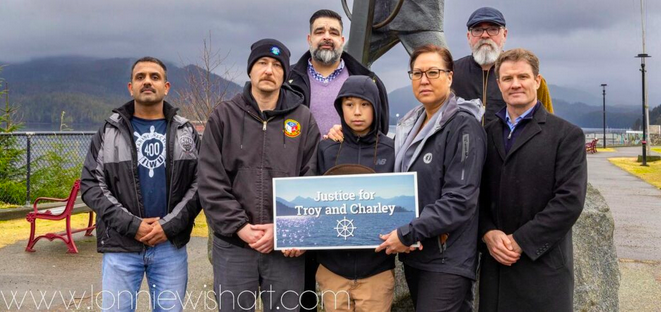New charges have been laid this month in regard to the tragic sinking of a tugboat near Kitimat in 2021 that resulted in the deaths of two of its crew members.
Troy Pearson and Charley Cragg both died when the tugboat Ingenika went out during a dangerously icy storm and sank in the Gardner Canal. A third crew member, Zac Dolan, survived after swimming to shore. The boat was carrying a barge with construction equipment for a nearby mine. The barge was more than five times the tugboat’s length.
Two years after the tragedy, B.C. Crown prosecutors have laid eight charges against Wainwright Marine, the tugboat company that owned Ingenika, and James Geoffrey Bates, its director. The regulatory charges accuse them of failing to uphold the Workers Compensation Act and provide adequate safety training and life-saving equipment.
“Three-quarters of a million dollars to a large corporation is nothing, and it isn’t going to bring back my husband and my child’s father, and young Charley as well.”
Judy Carlick-Pearson
The accused parties have previously been charged the maximum fine of $62,000 from Transport Canada for violating Canada Shipping Act regulations in regard to Ingenika’s sinking. The new charges could come with a $777,000 fine and a maximum of six months in jail.
West Coast Now called Wainwright Marine for comment but received no response.

Some, like Pearson’s wife Judy Carlick-Pearson, would have liked to have seen criminal charges. “Three-quarters of a million dollars to a large corporation is nothing, and it isn’t going to bring back my husband and my child’s father, and young Charley as well,” she told the Vancouver Sun.
Carlick-Pearson appeared in this powerful video calling for greater tugboat regulations and safety training last year.
Genevieve Cragg, Cragg’s mother, also weighed in on the inadequacy of the charges, saying, “the message to the marine industry and its workers is that workplace deaths are the cost of doing business.” When her 25-year-old son died, it was his first day out on the job. “James Bates needs to be in jail for the rest of his life,” she said.

Industry experts point to a larger systemic issue of weak tugboat regulations and worker safety.
“All commercial vessels should be inspected and certified. The people who work on them should be properly certified and trained.”
Jason Woods
Jason Woods, President of ILWU Local 400 Marine Section and General Workers, speaking to West Coast Now, said the tugboat industry is poorly regulated and in great need of an overhaul. “We don’t see any enforcement on the west coast,” he stated.
Under current regulation, inspection is reserved for tugboats over 15 tons, which the Ingenika was just shy of at 14.63 tons.
Woods calls the 15-ton requirement “arbitrary” and says it needs to go. “All commercial vessels should be inspected and certified. The people who work on them should be properly certified and trained.”

Photo credit: Volodymyr Kyrylyuk | Dreamstime.com
“We have 1400 small tugs in Canada. 80% of these are on the west coast. So 1000 boats in B.C. designed to tow have been repurposed to do all kinds of work they were never tasked to do.” A voluntary compliance scheme to monitor these boats fails to regulate most of the smaller tugs.
He points to the lack of resources at Transport Canada. We need an “actual presence from Transport Canada on the west coast. They don’t have any resources or boats to do their job. They need the funding to cover all the coastal communities serviced by tugboats.”
Woods wants the public to know that “tugboats are such a lynchpin for this coast, and we don’t see the human toll that goes into it.”
“We are advocating for change with the families and our union. And will continue to support Judy and Genevieve in their quest for justice.”






